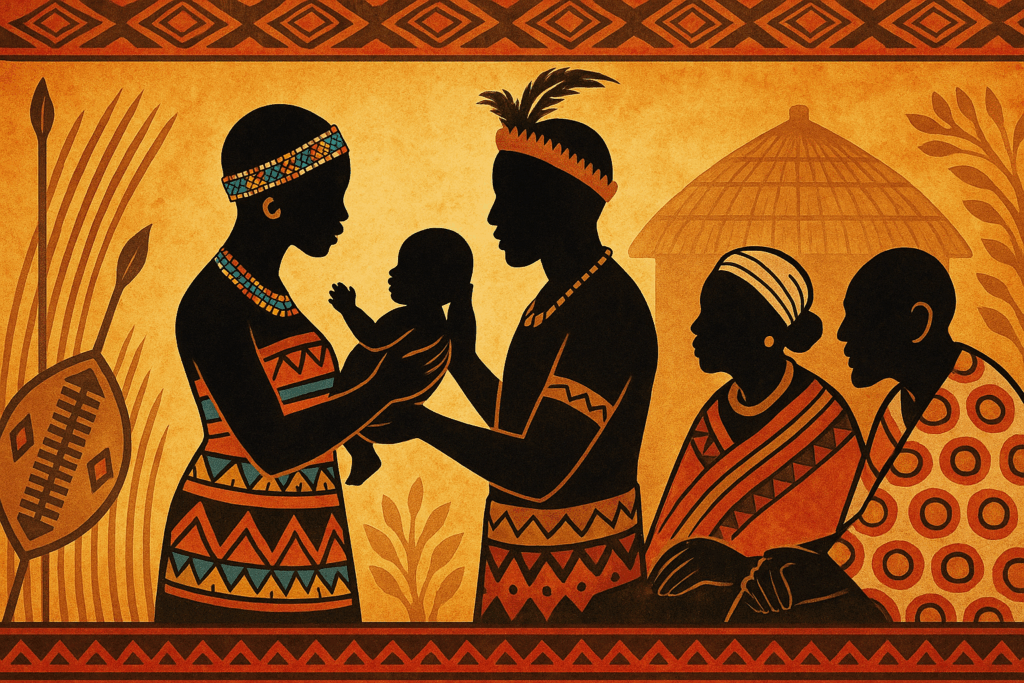Umlanjwana is a culturally specific term in isiZulu that, in customary contexts, refers to a child born outside of marriage. In some communities, the term is discussed alongside ivezandlebe, and it is tied to questions of lineage, ancestor recognition, and the obligations of both families.

What Does “Umlanjwana” Mean?
While dictionary glosses list broad meanings, the cultural usage that matters in family life is the one connected to out-of-wedlock birth and the social protocols that follow. In these cases, households may address how the child is introduced to ancestors and which surname, clan names, or kinship ties are acknowledged.
Why the Term Carries Weight
In Zulu worldviews, harmony between the living and the ancestors is central to well-being. When circumstances fall outside expected custom—such as a child born before lobola or marriage—families often seek pathways to restore balance, dignity, and clarity around kinship. These conversations aim to protect the child from stigma and ensure they are welcomed, named, and supported within a recognized lineage.
Key Cultural Questions Families Navigate
- Lineage & Surnames: How the child’s clan identities are acknowledged and communicated to both families.
- Ancestor Introduction: Whether and how rituals are performed to present the child to the appropriate lineage and seek protection.
- Community Standing: Avoiding stigma through respectful, transparent processes that prioritize the child’s best interests.
Familial Dynamics: Dialogue, Dignity, and Care
Because umlanjwana touches identity and belonging, the process typically emphasizes dialogue between households, the welfare of the mother and child, and the responsibility of broader kin. Elders may guide steps that affirm dignity, outline support, and clarify roles so that caregiving and financial responsibilities are shared fairly.
Modern Realities and Evolving Practice
Urbanization, education, and changing economic conditions mean families increasingly blend customary protocol with modern legal frameworks (e.g., birth registration and maintenance). Many households choose inclusive approaches—ensuring the child’s emotional, cultural, and material needs are met—while honoring living traditions in ways that reduce conflict and uphold mutual respect.
Practical Tips for Families
- Lead with the Child’s Welfare: Prioritize health care, registration, and secure support systems.
- Consult Elders & Mediators: Seek guidance on culturally appropriate steps that maintain dignity for all involved.
- Document Agreements: Where possible, record responsibilities to prevent future disputes.
Conclusion
Understanding umlanjwana helps families navigate sensitive terrain with compassion. By combining cultural wisdom with practical safeguards, Zulu households can affirm belonging, protect the child, and strengthen interfamily relationships—preserving heritage while meeting contemporary needs.



